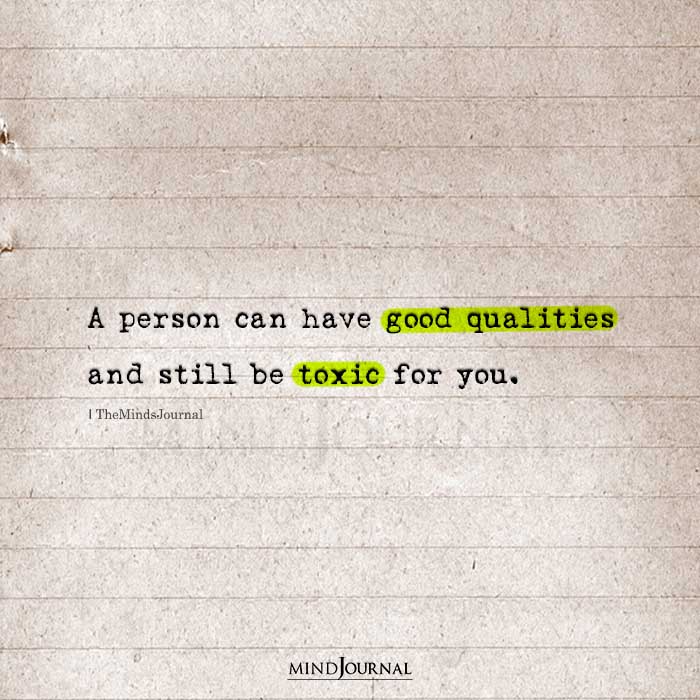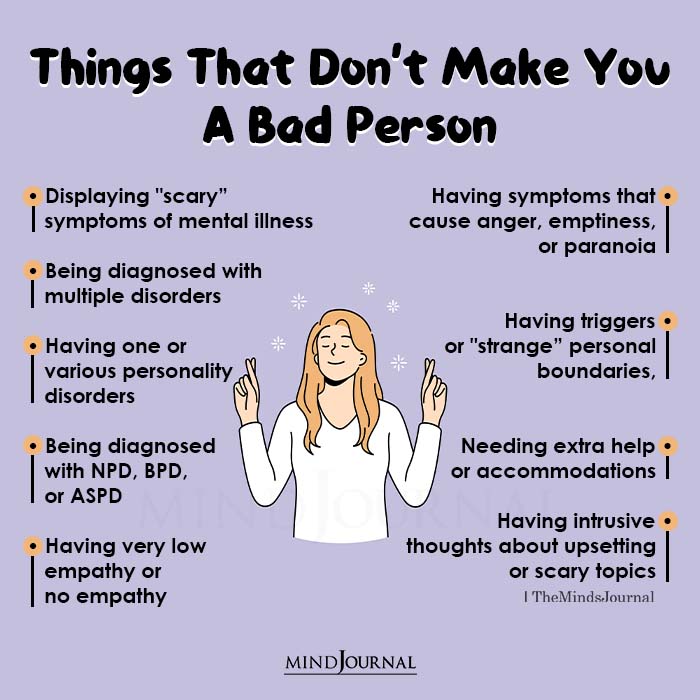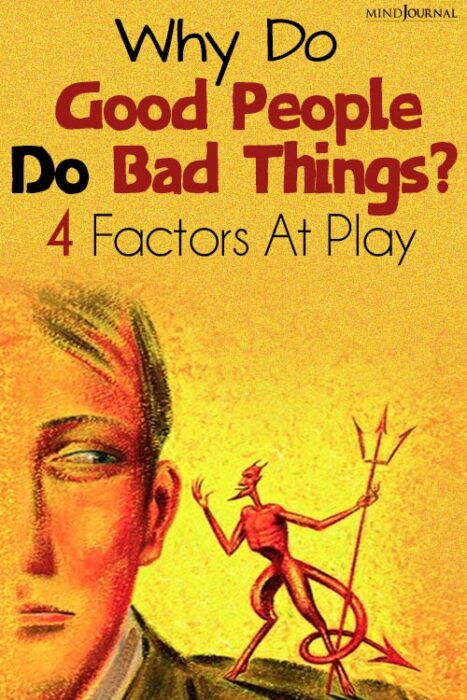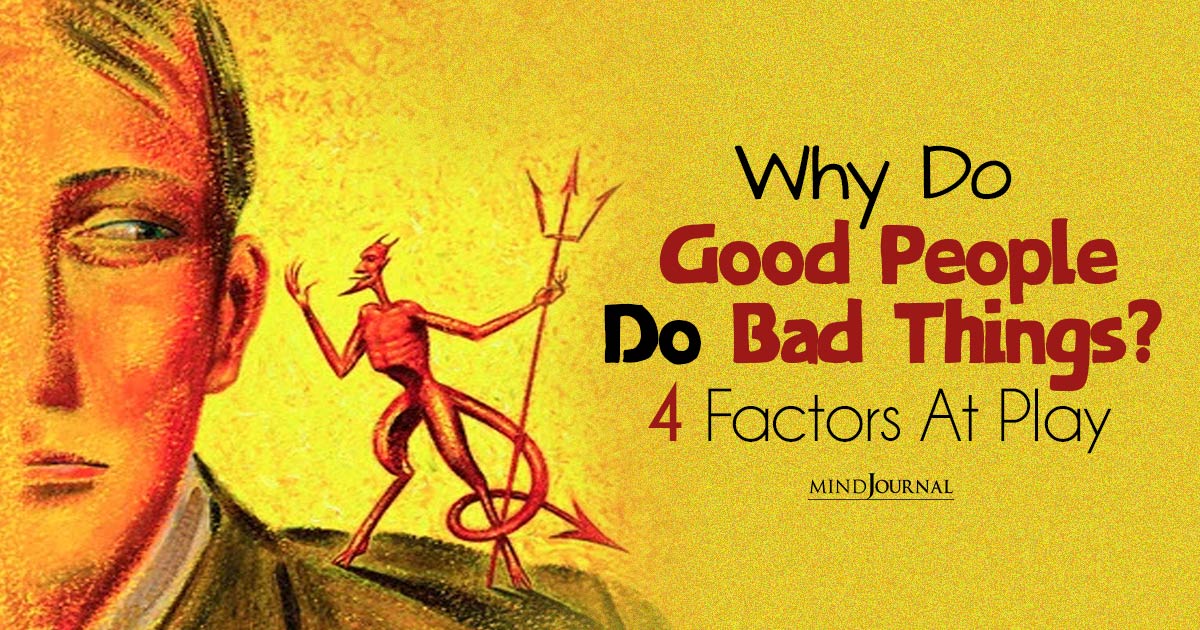Why do seemingly good-natured individuals sometimes engage in acts that are morally questionable or even outright harmful? It is a question that has puzzled philosophers, psychologists, and everyday people alike for centuries – Why do good people do bad things?
Let us dive into the depths of human behavior to explore this mystery and figure out intricate reasons behind why good people sometimes make bad choices. By unraveling these complexities, we can gain a deeper understanding of the human condition and foster empathy towards those who find themselves caught in the web of their own actions.
Why Do Good People Do Bad Things?
Everyone has a capacity for both good and bad behavior, influenced by circumstances and individual characteristics. Sometimes, people make mistakes or poor decisions without intending harm.
Good people may do bad things due to various factors like situational pressures, personal biases, or ethical lapses. Psychologists believe that situational factors, such as peer pressure or stress, can override moral beliefs. Additionally, cognitive biases may distort judgment, leading to unethical actions.
Understanding these complexities helps us recognize that even good people can falter, emphasizing the importance of self-awareness and ethical decision-making.
Related: The Dark Side of Nice People

What Makes Good People Do Bad Things: 4 Undeniable Factors
Investigating the complexities of human behavior, here are some of the most crucial factors that lead inherently good individuals to engage in morally questionable actions –
1. The Power of Situational Influences
Human behavior is profoundly influenced by the situations and contexts in which individuals find themselves. Often, individuals may act in ways that contradict their intrinsic moral values due to situational pressures.
The following factors shed light on why and when people do bad things:
a. Conformity and Group Dynamics
Humans are social creatures, and the need to belong and fit in can be a compelling force. Under the influence of a group, even the most virtuous individuals may succumb to conformity, leading them to engage in actions they would otherwise consider unethical.
The famous Milgram experiments and Asch conformity studies exemplify how ordinary people can be swayed by the influence of authority figures and social pressure.
b. Diffusion of Responsibility
In certain situations, individuals may feel less accountable for their actions when they believe others share the responsibility. This diffusion of responsibility can diminish their personal moral compass and prompt them to participate in behaviors they would never engage in when acting autonomously.
The bystander effect, observed in emergencies or crises, demonstrates how good people may fail to intervene when they perceive others as equally capable of helping. This is one of the answers to the question – why do good people do bad things?
2. Cognitive Biases and Moral Reasoning
The human mind is susceptible to cognitive biases, which can distort moral decision-making. Understanding these biases helps shed light on why seemingly good people may make morally questionable choices:
a. Confirmation Bias
Confirmation bias is the tendency to seek out, interpret, and remember information that aligns with pre-existing beliefs or expectations.
When confronted with ethical decisions, individuals may selectively process information that supports their desired outcome, leading them to justify actions that may contradict their moral principles.
b. Moral Disengagement
Moral disengagement is a psychological mechanism that allows individuals to distance themselves from the ethical implications of their actions.
By dehumanizing victims, minimizing personal responsibility, or attributing blame to external factors, individuals can mentally absolve themselves of guilt and engage in behavior that contradicts their innate moral compass.
Related: 30+ Signs You Are A Toxic Person: Change Your Behavior, Not Others!
3. The Influence of Environmental Factors
The environments in which individuals find themselves can significantly impact their behavior and ethical decision-making processes. Consider the following factors:
a. Deprivation and Scarcity
When individuals face deprivation, scarcity, or adverse circumstances, their cognitive bandwidth can become compromised. Scarcity mindset can lead people to prioritize immediate needs over long-term moral considerations. This can influence them to make choices that may be detrimental to themselves and others. This is when people do bad things.
b. Authority and Power Structures
The presence of hierarchical power structures can lead to abuses of authority. Good people placed in positions of power may succumb to the temptations and privileges that come with it, leading them to engage in unethical behavior.
The Stanford Prison Experiment serves as a stark reminder of how individuals can be transformed by their roles within a power structure.

4. Ethical Relativism and Justification
The concept of ethical relativism acknowledges that moral judgments can vary across different cultures, societies, or individuals. When confronted with conflicting moral frameworks, individuals might rationalize their actions to align with their personal or cultural norms:
a. Cultural Conditioning
So why do good people do bad things? Cultural and societal norms play a significant role in shaping individual behavior. People often adopt the values and beliefs of their communities, even if those values contradict universal moral principles.
This cultural conditioning can lead good people to justify actions that are deemed acceptable within their cultural context but may be considered unethical by others.
b. Rationalization and Self-Justification
Humans possess a remarkable ability to rationalize their actions to maintain a positive self-image. Good people may employ self-serving biases and cognitive dissonance to reconcile their behavior with their self-perception, allowing them to continue engaging in actions that they know to be morally questionable.
Takeaway
The complexities of human behavior make answering the question of “Why do good people do bad things?” far from simple. It is crucial to recognize that moral decision-making is influenced by a multitude of factors, including situational pressures, cognitive biases, environmental influences, and cultural conditioning.
By understanding these intricacies, we can cultivate empathy and compassion towards individuals who find themselves entangled in moral dilemmas.
Let us foster a society that encourages critical self-reflection, empathy, and ethical growth, empowering good people to make choices that align with their inherent goodness.
Related: 5 Signs A Seemingly Nice Person Secretly Has Some Cruel Intentions
Frequently Asked Questions (FAQs):
What is the main idea of what makes good people do bad things?
Even inherently good people can engage in morally questionable actions due to situational pressures, personal biases, and cognitive distortions.
What happens when you put good people in an evil place?
Good people may adopt harmful behaviors when influenced by the negative dynamics and pressures of such environments.
How situations can foster evil?
Certain situations can create conditions that encourage or enable individuals to engage in unethical or harmful behaviors.









Leave a Reply
You must be logged in to post a comment.